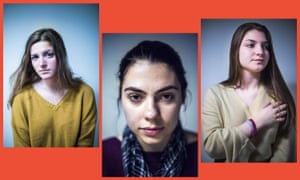Linda Brown’s death is a reminder of how much segregation still exists in America’s schools
The death of an icon in America's civil rights history is a reminder of how recently school segregation existed in the United States — and how little has changed since that time.
Linda Brown, who became the symbolic center of Brown v. Board of Education, the U.S. Supreme Court case that desegregated the nation's public schools, died on Sunday at 76. Her father, the Rev. Oliver L. Brown, was one of 13 plaintiffs who sought to ensure that Topeka, Kan., fully integrated its schools.
“I feel that after 30 years, looking back on Brown v. the Board of Education, it has made an impact in all facets of life for minorities throughout the land,” Brown said in a 1985 interview for “Eyes on the Prize,” a PBS documentary series on the civil rights movement. “I really think of it in terms of what it has done for our young people, in taking away that feeling of second-class citizenship.”
But while many black youths may no longer feel like second-class citizens, data suggests they may still be experiencing America in that way.
A recent report by the Economic Policy Institute says that 50 years after the Kerner Commission, a group that assessed poverty and racism in the United States, black youths have made significant gains in K-through-12 education, but challenges still exist.
“Over the last five decades, African Americans have seen substantial gains in high school completion rates. In 1968, just over half (54.4 percent) of 25- to 29-year-old African Americans had a high school diploma. Today, more than 9 out of 10 African Americans (92.3 percent) in the same age range had a high school diploma.However, college completion expanded for whites at a similar pace, rising from 16.2 percent in 1968 to 42.1 percent today, leaving the relative situation of African Americans basically unchanged: In 1968 blacks were just over half (56.0 percent) as likely as whites to have a college degree, a situation that is essentially the same today (54.2 percent).”
These strides have often been made in schools that don't look much different from those in Kansas in the 1950s. In the last few decades, schools have been quietly resegregating. Federal data shows that the number of high-poverty schools serving primarily black and brown students has more than doubled between 2001 and 2014. Continue reading: https://www.washingtonpost.com/news/the-fix/wp/2018/03/27/linda-browns-death-is-a-reminder-of-how-much-segregation-still-exists-in-americas-schools/







































